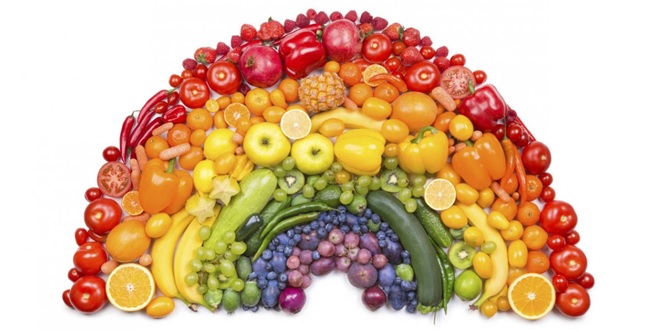
Following a diet packed with foods and supplements that lower the markers of inflammation
in our bodies can lower our risk for an early death.
An anti-inflammatory diet may reduce your risk for cancer and cardiovascular disease.
If you’re hoping to live a long and healthy life, you might want to embrace an anti-inflammatory
diet.
New research published in the Journal of Internal Medicine suggests that a diet
that includes foods like fruits and vegetables, and mostly steers clear of processed
foods, is associated with a lower risk of death at an early age.
The research was led by Joanna Kaluza, DSc, an associate professor at the Warsaw
University of Life Sciences in Poland. It looked at 68,273 Swedish men and women
between the ages of 45 and 83. The study followed people for 16 years, and those
who stuck with a mostly anti-inflammatory diet had an 18 percent lower risk of all-cause
mortality, 13 percent lower risk of dying from cancer, and 20 percent lower risk
of dying from heart disease.
What is an anti-inflammatory diet?
This kind of diet focuses on foods high in nutrients — especially antioxidants —that
have been tied with “lowering the markers of inflammation in our bodies.”
Its key players are foods like fruits, vegetables, legumes, healthy fats — like
those that come from olive oil and avocado — fish, nuts, and dark chocolate. Red
wine is sometimes considered to be a component of an anti-inflammatory diet, though
it should be consumed in moderation.
If you’re thinking that sounds a lot like the popular Mediterranean diet, you’re
right. An anti-inflammatory diet is basically an on-trend term that describes established
recommendations for eating healthy. Anything that’s “nutrient dense” with a lot
of vitamins and minerals and color, from a natural source would be an ideal component
of this diet. However, an anti-inflammatory diet isn’t just about what you eat,
but what you don’t eat, foods high in salt, saturated fat, sugar, and refined carbohydrates
should be limited or avoided. When these kinds of foods are consumed in excess they’re
linked to higher markers for inflammation — which is tied to almost every kind of
chronic disease — and presents a greater risk for cancer and diabetes.
Inflammation is a complicated process. There is some research to support that eating
recommended amounts of foods like fruits, vegetables, healthy fats, and whole grains
can reduce risk for chronic diseases that have an inflammatory component, such as
cardiovascular disease, type 2 diabetes, and some types of cancer.
So, what makes these foods so inherently healthy?
Primarily, it’s the antioxidants. Omega-3 fatty acids are antioxidant and anti-inflammatory.
Fruits and vegetables are packaged nuggets of antioxidants and anti-inflammatories.
Our ancestors ate a primarily plant-based diet that was completely unprocessed,
[and] that’s what, evolutionarily, we are supposed to be eating for good health.
Investing in your own health is a big thing. While there may be some up-front costs
of switching diet, which really everyone would benefit from, the amount it would
save in healthcare costs and productivity is really worth it.